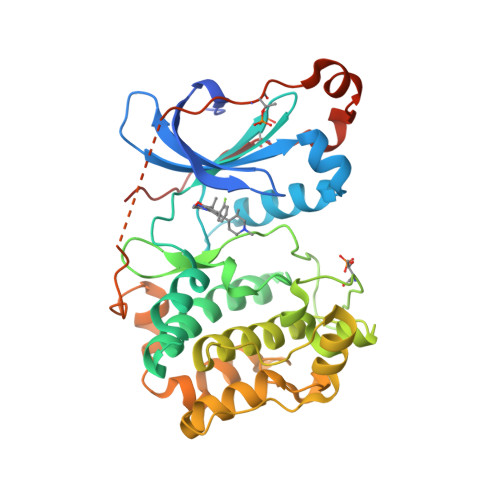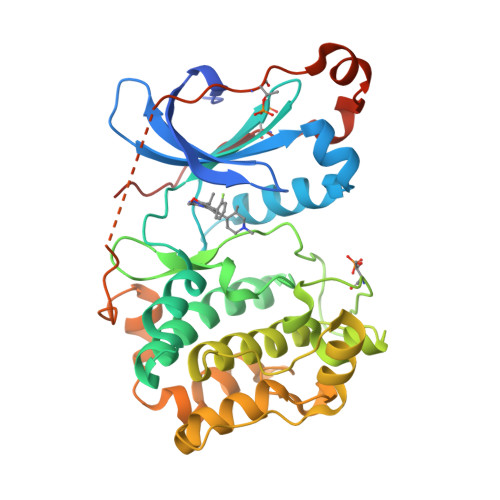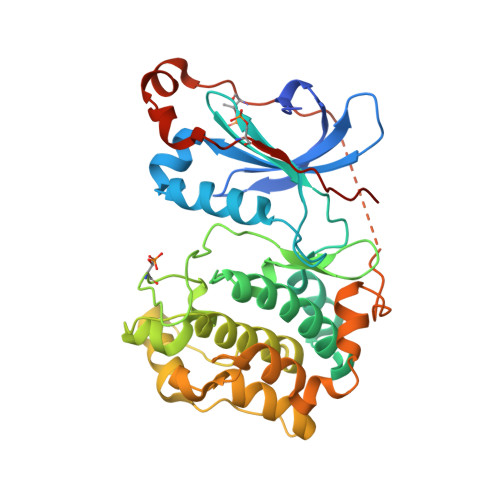Optimized Protein Kinase C theta (PKC theta ) Inhibitors Reveal Only Modest Anti-inflammatory Efficacy in a Rodent Model of Arthritis.
George, D.M., Breinlinger, E.C., Argiriadi, M.A., Zhang, Y., Wang, J., Bansal-Pakala, P., Duignan, D.B., Honore, P., Lang, Q., Mittelstadt, S., Rundell, L., Schwartz, A., Sun, J., Edmunds, J.J.(2015) J Med Chem 58: 333-346
- PubMed: 25254961
- DOI: https://doi.org/10.1021/jm5013006
- Primary Citation of Related Structures:
4RA4, 4RA5 - PubMed Abstract:
We previously demonstrated that selective inhibition of protein kinase Cθ (PKCθ) with triazinone 1 resulted in dose-dependent reduction of paw swelling in a mouse model of arthritis.1,2 However, a high concentration was required for efficacy, thus providing only a minimal safety window. Herein we describe a strategy to deliver safer compounds based on the hypothesis that optimization of potency in concert with good oral pharmacokinetic (PK) properties would enable in vivo efficacy at reduced exposures, resulting in an improved safety window. Ultimately, transformation of 1 yielded analogues that demonstrated excellent potency and PK properties and fully inhibited IL-2 production in an acute model. In spite of good exposure, twice-a-day treatment with 17l in the glucose-6-phosphate isomerase chronic in vivo mouse model of arthritis yielded only moderate efficacy. On the basis of the exposure achieved, we conclude that PKCθ inhibition alone is insufficient for complete efficacy in this rodent arthritis model.
Organizational Affiliation:
AbbVie Bioresearch Center , 381 Plantation Street, Worcester, Massachusetts 01605, United States.



















